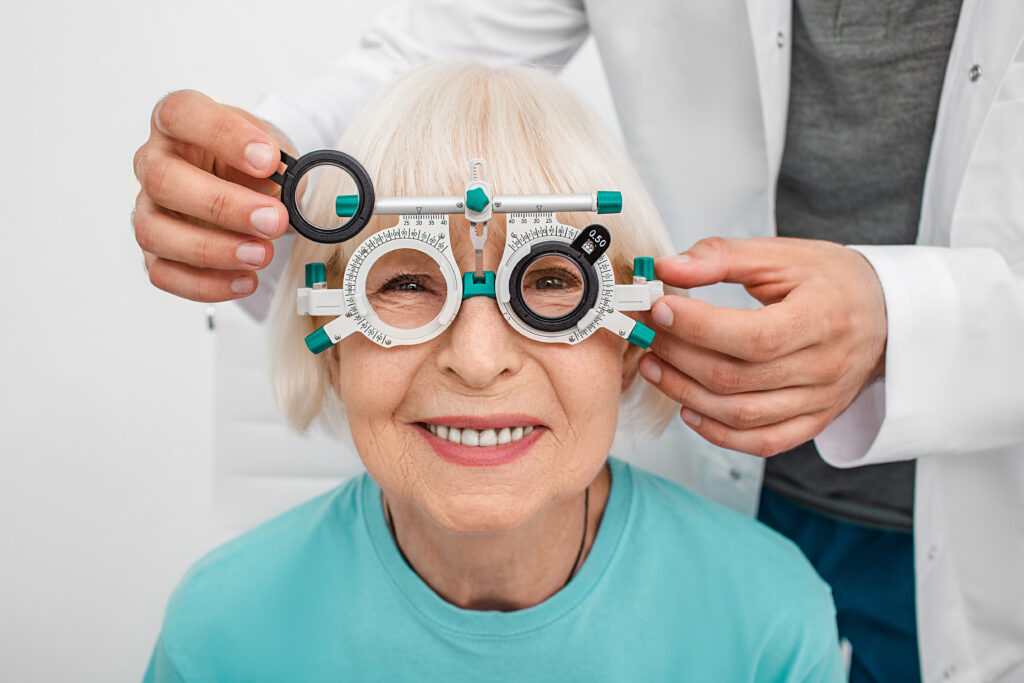February is Age-Related Macular Degeneration Month. What is this condition, exactly? As you age, the cells in the macula — the central part of your retina responsible for clear, sharp vision — can break down. This breakdown leads to blurry or distorted vision and even permanent vision loss over time. Understanding the symptoms allows you to seek treatment early and protect your eyesight.
The American Academy of Ophthalmology reports that age-related macular degeneration (AMD) is the leading cause of vision loss in people over 50.
What Causes Macular Degeneration?
There are a few contributing factors to macular degeneration. As we age, waste products can build up in the retina and cause inflammation or abnormal blood vessel growth. Your genes also play a role; you’re more likely to develop macular degeneration if you have a family history. Environmental factors like smoking and sunlight exposure increase your risk as well. The end result is damage to the light-sensing cells in your macula.
Catching AMD Signs Early
You may not notice significant vision changes in the early stages of age-related macular degeneration. Over time, you may see distorted lines, blurriness, or dark or empty spots in your field of vision. If you start noticing these symptoms, schedule an eye exam with us right away. The sooner macular degeneration is caught, the better the chances of slowing its progression.
During your exam, your eye doctor will look for drusen — tiny yellow deposits under the retina. Many people develop some hard drusen as they age, but having soft, large drusen increases your risk for advanced macular degeneration. Additional tests can confirm a diagnosis.
Protecting Your Vision
While there is no outright cure for macular degeneration, several treatments exist that can slow vision loss. For example, your eye doctor may recommend nutritional supplements with antioxidant vitamins and minerals. They help limit retinal damage from waste buildup.
Beyond supplements, protecting your eyes from excessive sunlight is hugely important. Wear sunglasses whenever you’re outside, especially with activities like gardening, hiking or water sports. Also, quit smoking if you currently use tobacco; research shows people who smoke are four times more likely to develop macular degeneration.
Depending on the type of AMD you have, it can be treated through prescription medication or, in some cases, laser therapy. We personalize each patient’s treatment to suit their needs.
Preserving a clear vision takes commitment, but the effort helps you maintain independence and quality of life. Don’t wait until symptoms appear, either. Have a dilated eye exam at least every 2 years, starting around age 50, or sooner if you have a family history of AMD or other ocular conditions.
Schedule an Appointment for Peace of Mind
If you are concerned about your vision or want to learn more about AMD, please schedule an appointment with us at Abraham Eye Associates. Our passionate team of eye care specialists will help you find the proper treatment for your vision and address any risk factors you may have.
Please use our contact page or call our Villanova, PA office at (484) 209-0800 to request an appointment.




